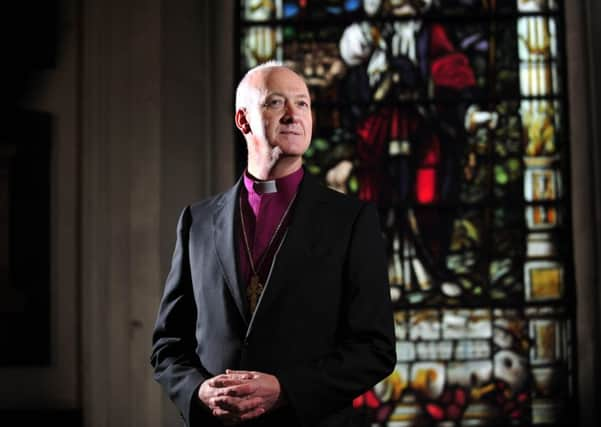Nick Baines: Brexit and how political integrity gets lost in translation


Weren’t we all embarrassed by the mockery in European media at the UK government’s attempts to translate the White Paper into other languages – German being the most obvious? Were we not aware that professionally you always translate into your native tongue, not out of it? It seems that not only are we islanders hopeless at learning languages, but we still don’t even see or understand the cost of our hopelessness.
Surely, the first requirement of any negotiation is that the negotiators understand the mindset, culture, language and perceptions of the opposite number – get inside their head, look through their eyes and listen through their ears.
Advertisement
Hide AdAdvertisement
Hide AdIf I don’t understand what I, we and the world look like through the eyes of my interlocutor, I can’t begin to negotiate intelligently.
This goes well beyond figures, facts and tactics; it goes deeper from the superficial to the emotional and subliminal.
It is where we discover what actually moves and shapes the mindset, reactions and behaviours of those with whom we seek to trade.
Yet, here we are, unable or unwilling to speak the language of those with whom we think we can reach agreement. We just tell them they have to see everything as we do.
Advertisement
Hide AdAdvertisement
Hide AdThe problem, of course, is that most of those with whom we deal in the EU do speak our language, do get behind the words to the mindset and, therefore, are in a stronger position from the outset.
I labour this point not in order to grind an axe about the poverty of language learning in the UK – seen as a priority in other countries – but because my earlier concerns about the culture generated by Brexit have deepened.
This is a moral issue. In the same way that the US President has normalised lies and relativised truth (‘alternative facts’ and all that stuff, for example), we have descended into a non-rational lobbing of slogans and empty promises and damnations from trench to trench.
Honesty and integrity – the essential prerequisites of moral culture are being sacrificed on the altar of mere political or personal pragmatism.
Advertisement
Hide AdAdvertisement
Hide AdAnd this is at the core of my concern: the sheer dishonesty of much of the language and rhetoric of the last couple of years. If “the will of the people” matters so much, then shouldn’t the people be told the truth about the range of potential consequences of Brexit?
If the Government sees that the UK (and the EU) will suffer short or medium term negativity in order to gain nirvana after a couple of decades or so, shouldn’t they actually say that? Explain that it is worth consigning a generation of young people to a poorer life because we need to take a longer-term view of the national good? If ‘the people’ can be trusted with a vote in a referendum, why can’t they be trusted with the truth rather than being patronised with endless polarising rhetoric?
What happens if the ‘will of the people’ turns out not to be ‘in the national interest’? Who defines these terms? These are not arcane questions. The Prime Minister has said that we now need to “get on with Brexit”. Which, of course, begs the question as to what we have been doing thus far. The new Brexit Secretary promises “energy, vigour and pragmatism” ... as if these were laudable new ideas. But they remain meaningless and vacuous if they are not underpinned by a respect for, and an intelligent learning, of the languages of our interlocutors in the EU.
We can talk about a second referendum, a general election, the change of Prime Minister in a party coup, the ‘taking back of control’ and so on. But the questions of culture, of language, of dealing with the real world rather than some nostalgic fantasy couched in slogans: these will outlast any deal or no deal. Are we paying attention to who we shall be – not only seen through our own eyes, but also through the eyes of our neighbours, and also in the eye of our children, in the months and years to come?
This debate is not neutral.
The Right Reverend Nick Baines is the Bishop of Leeds. He spoke in a House of Lords debate on Brexit this week. This is an edited version.